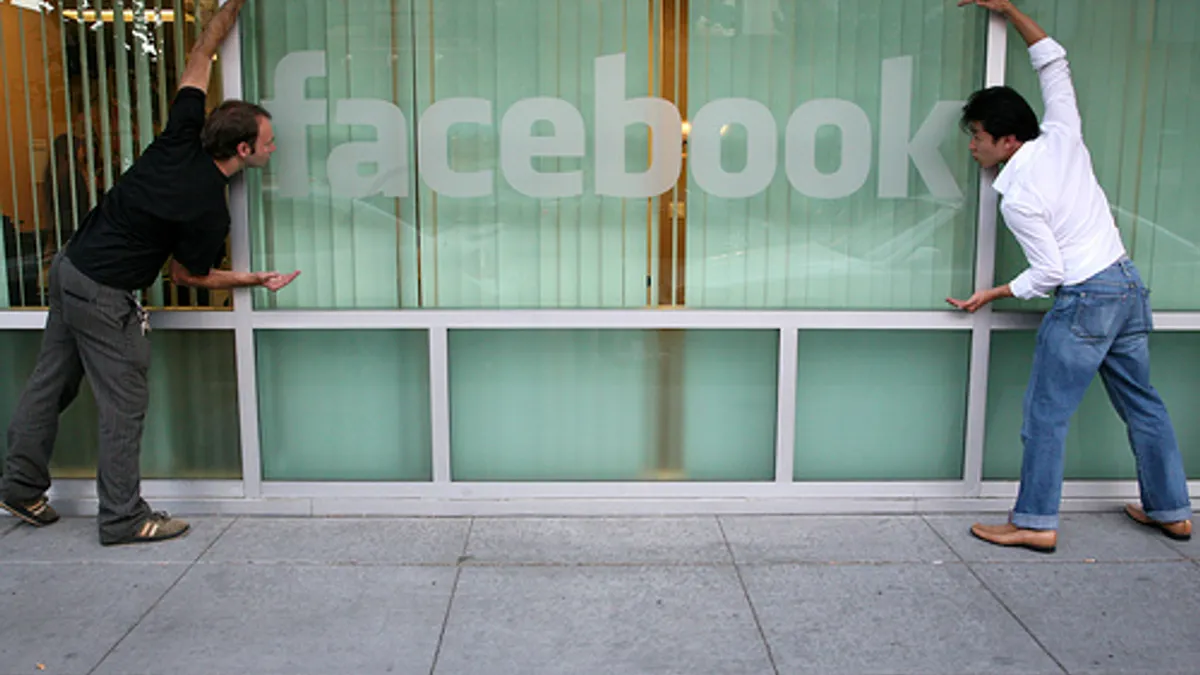Dive Brief:
-
Head of the U.S. Senate Commerce Committee John Thune said in a statement to Reuters on Monday that the committee had sent a letter seeking additional information from Facebook about its data collection practices in the wake of a report published by The New York Times on Sunday. The letter to Facebook CEO Mark Zuckerberg states the reported practices are "deeply concerning." The Times investigation details the scope of data-sharing partnerships Facebook has forged with at least 60 device makers, including Apple, Amazon, BlackBerry, HTC, Microsoft and Samsung.
-
The deals, made over roughly the past decade, allowed these companies to gain what the Times calls "deep access," not only to data from users, but also their friends who did not offer explicit consent to data collection. This extended even to friends of users who had taken steps to bar the sharing of their personal information, the Times said. As a test, the Times used one of its reporter's Facebook accounts on a 2013 BlackBerry device and found it gleaned information from the reporter's friends that stepped beyond what Facebook claims to collect. Since 2015, Facebook has said it limits information collection to the names of friends using the same app as the user, but the BlackBerry showed data like user IDs, birthdays, work and education history and online status.
-
Such data collection potentially runs up against a 2011 user consent decree enforced by the Federal Trade Commission, per the Times. Facebook on Monday contested the Times' reporting in a blog post penned by VP of Product Partnerships Ime Archibong. While Archibong never made explicit reference to Facebook's Cambridge Analytica privacy scandal that broke in March, he differentiated the practices under examination by the Times from those of third-party developers, the category Cambridge Analytica falls under, per Reuters. Facebook said in a statement to Reuters that it looks "forward to addressing any questions the Commerce Committee may have. "
Dive Insight:
Outcry over Cambridge Analytica only just appeared to cool, but the Times report has already reignited inquiry into how Facebook potentially steps over the line when it comes to sharing information on its more than 2 billion global users. Following the Cambridge Analytica scandal, CEO Zuckerberg testified before Congress, where he faced a flurry of questions about Facebook's practices but came out largely unscathed. A Senate panel probe arriving just months later would be another ding to the social network's reputation and again raises the possibility that regulatory bodies might take a firmer stance against Facebook, which, like many technology companies, has to date been largely self-regulating.
Facebook's reaction to Cambridge Analytica was centered largely on an apology tour, including through a marketing campaign hearkening back to better days for the company. The post published by Archibong over the weekend, as a contrast, stands firmly against the Times' article and in support of the platform's partners.
"These partners signed agreements that prevented people's Facebook information from being used for any other purpose than to recreate Facebook-like experiences," Archibong wrote, adding later: "Contrary to claims by the New York Times, friends' information, like photos, was only accessible on devices when people made a decision to share their information with those friends. We are not aware of any abuse by these companies."
Many of Facebook's partnerships with device makers are ongoing, but the platform started to wind them down in April, according to the Times. Scrutiny of such practices could be harsher under new rules like the European Union's General Data Protection Regulation, which went into effect on May 25 and looks to ensure internet companies receive informed consent on any information they collect on users.
Public response to the Cambridge Analytica news was harsh, with hashtags like #DeleteFacebook trending on social media and several brands suspending their advertising on Facebook. The issue didn't appear to impact the company's performance in first-quarter earnings reported in late April, though it's possible the results came too close on the tails of the scandal breaking to have a measurable impact.
Facebook, which is the second-largest digital advertising platform in the world behind Alphabet's Google, has made several changes to allay potential concerns about its handling of data post-Cambridge Analytica. In March, it announced plans to shut down Partner Categories, a feature which launched in 2013 and assists advertisers in targeting ads based on third-party data.















